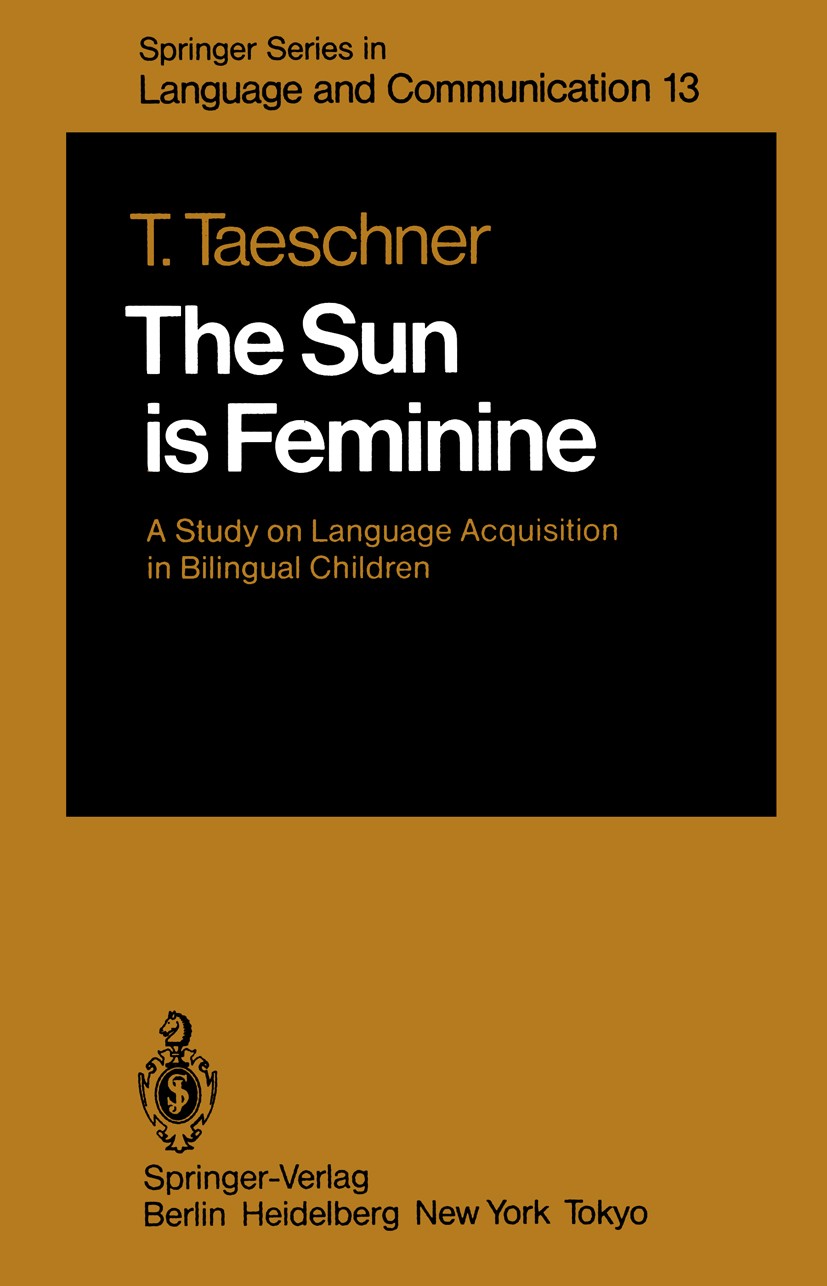| 书目名称 | The Sun is Feminine | | 副标题 | A Study on Language | | 编辑 | Traute Taeschner | | 视频video | http://file.papertrans.cn/921/920794/920794.mp4 | | 丛书名称 | Springer Series in Language and Communication | | 图书封面 |  | | 描述 | Lisa is 4 years and 5 months old and Giulia 3 years and 4 months. One morning, the girls‘ father is taking them to nursery school. L: ... e bravissima, ha riscaldato l‘auto. E‘ bravissima, vera? In praising the sun for having warmed up the car, Lisa has referred to it in the feminine gender, as in the German die Sonne. Her father corrects her by using the masculine gender. F: E‘ bravissimo. E‘ if sale. L: E‘ un maschietto, if sale? (Is the sun a little boy?) F: E‘maschife. (It‘s masculine.) G [determined]: E‘ una femmina! (No, it‘s a girl!) F: Forse in tedesco. (Perhaps it is in German.) is left disoriented, speechless. Giulia This book is devoted to language acquisition in children who have been expos ed to two languages since birth. It has often been said that the study of simultaneous bilingualism is the "most fertile ground" for the formulation of general theories on language acquisition processes, and indeed, most of the studies on early bilingualism aim in this direction. But in a sense this book serves the reverse purpose. Using the results of psycholinguistic research as a basis, I have sought to understand the peculiarities of the process of language organization in the c | | 出版日期 | Book 1983 | | 关键词 | German; Spracherwerb; Sun; Zweisprachigkeit; bilingual; language acquisition; learning; monolingual | | 版次 | 1 | | doi | https://doi.org/10.1007/978-3-642-48329-5 | | isbn_softcover | 978-3-642-48331-8 | | isbn_ebook | 978-3-642-48329-5Series ISSN 0172-620X | | issn_series | 0172-620X | | copyright | Springer-Verlag Berlin Heidelberg 1983 |
The information of publication is updating

|
|
 |Archiver|手机版|小黑屋|
派博传思国际
( 京公网安备110108008328)
GMT+8, 2026-2-8 15:04
|Archiver|手机版|小黑屋|
派博传思国际
( 京公网安备110108008328)
GMT+8, 2026-2-8 15:04


